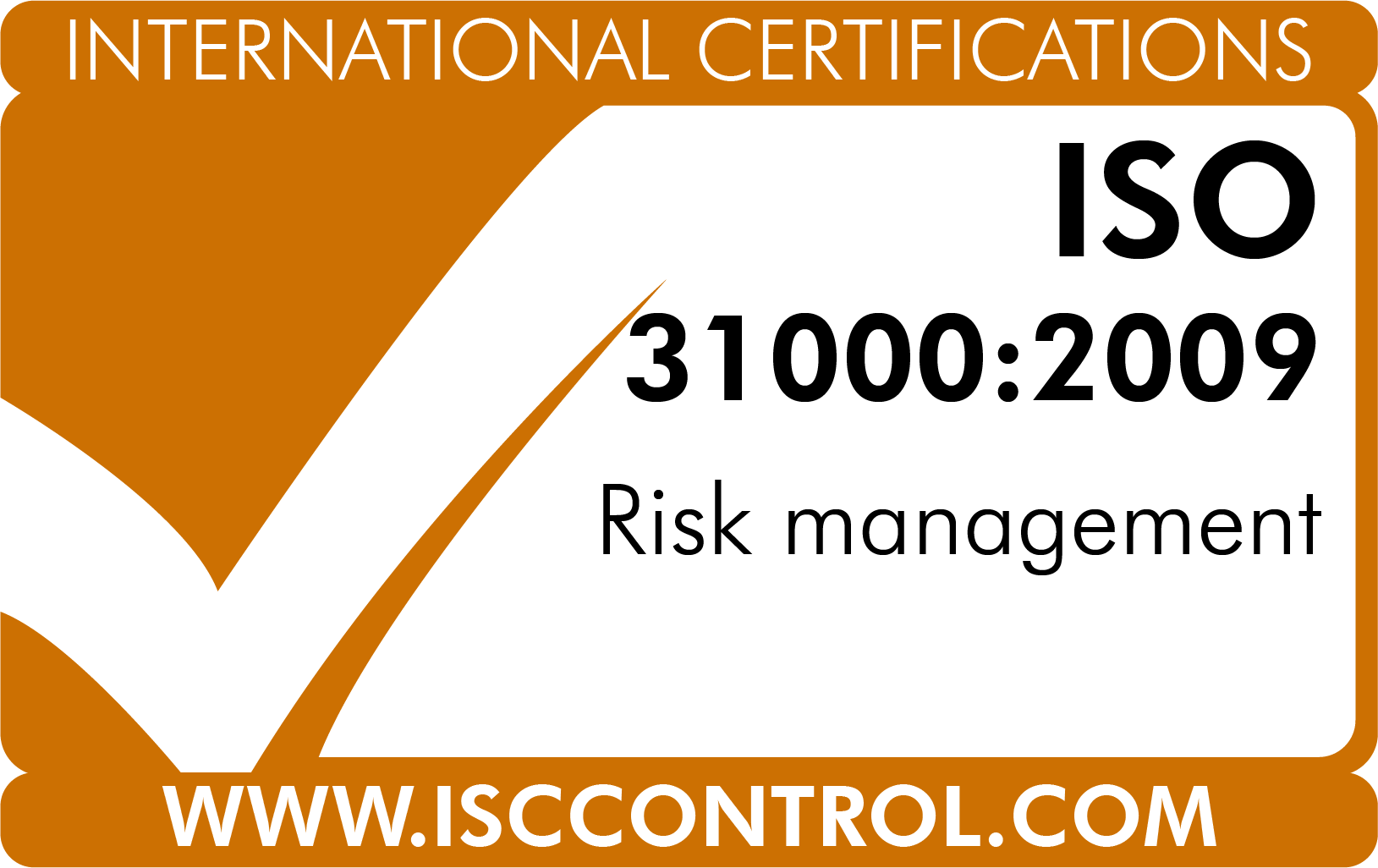ISO 31000 2009 Risk Management
ISO 31000:2009 provides generic guidelines for the design, implementation and maintenance of risk management processes throughout an organization. Risks affecting organizations can have consequences in terms of economic performance and professional reputation, as well as environmental, safety and societal outcomes. Therefore, managing risk effectively helps organizations to perform well in an environment full of uncertainty.
ISO 31000:2009 has been developed as a replacement to the existing standard on risk management, AS/NZS 4360:2004. Although ISO 31000:2009 was not developed with the intention for certification, many organizations still choose to be certified to this standard
Several standards have been developed worldwide to help organizations implement risk management systematically and effectively. These standards seek to establish a common view on frameworks, processes and practice, and are generally set by recognized international standards bodies or by industry groups. Risk management is a fast-moving discipline and standards are regularly supplemented and updated.
Globally the preferred risk management system standard is ISO 31000:2009. There are many other industry specific risk management standards such as ISO 14971:2007.
ISO 31000 2009
Risk Management
ISO 31000 consists of 11 key principles which view risk management as an elementary process of generating success of the organization. These eleven principles can be regarded as the “essential qualities” required for risk management.
- Principle 1: Risk management creates and protects value.
- Principle 2: Risk management is an integral part of the organizational procedure.
- Principle 3: Risk management is part of decision making.
- Principle 4: Risk management explicitly addresses uncertainty.
- Principle 5: Risk management is systematic, structured and timely.
- Principle 6: Risk management is based on the best available information.
- Principle 7: Risk management is tailored.
- Principle 8: Risk management takes human and cultural factors into account.
- Principle 9: Risk management is transparent and inclusive.
- Principle 10: Risk management is dynamic, iterative and responsive to change.
- Principle 11: Risk management facilitates continual improvement and enhancement of the organization.
International Certifications offer the following Risk Management certification programs plus many more:
Why Choose ISC Control as Your Certification Body?
Global Recognition
Selecting the right organization or certification body that offers qualitative and credible training and certification services can be a challenge. However, by choosing an accredited certification body, such as ISC Control, proves that you follow best practices, up to speed, and trustworthy.
Professionals who pursue a ISC Control con certification credential will benefit from the recognition in domestic and overseas markets. Being accredited by some of the strictest and most reputable accreditation bodies in the world gives us global recognition.

